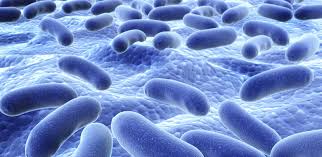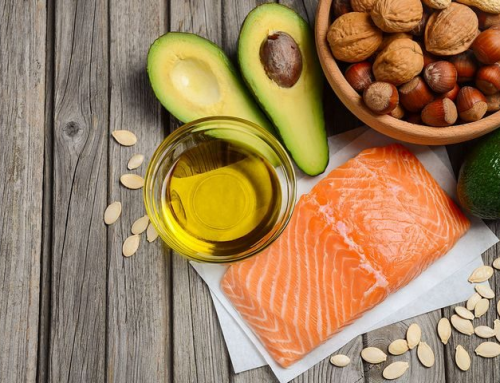New and evolving research reveals a number of health implications of the bacteria that call our guts home – from immunity through to weight loss.
We are delighted to share with you some information about the importance of healthy gut bacteria for our digestive health, general health, and even mental health.
This includes:
- The role of our gut bacteria
- Gut bacteria and brain health
- What we eat matters (more than we think)
- Supplementing Probiotics & Prebiotics
The role of micro-flora in our gut
Scientists have long studied the link between our genes and our health. Now, in a growing area of scientific research, the link between bacteria in our gut and our general health is taking centre stage.
Our intestinal micro-flora not only make a significant contribution to the healthy functioning of the gastrointestinal tract – they also contribute to, and participate in, our complex biochemistry. Micro-flora play a role in:
- Immunity
- Detoxification
- Inflammation
- Neurotransmitter production
- Vitamin production
- Nutrient absorption
- Cholesterol metabolism
- Hormone metabolism
Gut Bacteria and Brain Health
There’s new evidence to suggest that intestinal gut flora play a role in our mental health.
We all know the feeling of being sick to the stomach at the thought of something horrendous or feeling elated at receiving good news. Scientists are now learning that the close relationship between the gut and the brain goes both ways. Just as the brain can send butterflies to your gut, your gut can relay its state of calm or alarm to the brain.
The main channel responsible for this communication is the vagus nerve. This nerve connects our intestinal nervous system to the central nervous system – the brain and spinal cord.
Although the communication lines aren’t fully understood, gut flora and brain cells may stay in touch in several ways. Signals can move along the vagus nerve. They can be carried by chemical messengers such as serotonin. They may even be transported by molecules travelling via the immune system.
Recent studies suggest that the gut flora of people with depression differs from those of people without depression. This raises the possibility that an imbalance of gut micro-flora could be a contributing factor.
Although preliminary, these studies offer hints about how bacteria living in our gut may alter our brain and emotions.
What we eat matters (more than we think)
One of the most significant factors related to the health of our gut, our health, and our brain is the food we eat.
Research shows that significant changes in gut bacteria can occur as little as six days after changing our diet. However, positive changes to gut bacteria depend on many factors including current health status, age, medication use and how committed one is to dietary change.
However, the main focus of a gut-supportive diet is plant foods. An ideal meal contains 2/3 low-carbohydrate vegetables and 1/3 clean protein. It’s also important to reduce your carbohydrate intake and embrace high-quality fats, particularly essential fatty acids.
This diet keeps your blood sugar balanced, which supports happy gut bacteria. Furthermore, a diet high in fibrous fruits and vegetables feeds good bacteria and supports short chain fatty acid production. Finally, it is a diet that is naturally anti-inflammatory and therefore good for the brain.
Stay tuned for future posts in regard to an anti-inflammatory diet and gut health.
Probiotic and Prebiotic Supplementation
Research has shown that probiotic and prebiotic supplements can influence the balance of bacteria in the digestive tract. Therefore, they may have very important roles to play in our health.
There is increasing evidence demonstrating the benefits of probiotic supplementation. Research notes the benefit of supplementation in supporting general gut health, maintenance of the intestinal lining, and treatment and prevention of health conditions.
Probiotic Supplements: The Facts
Probiotics are supplements with either a single or mixed culture of live micro-organisms. They exert beneficial effects on health by shifting the intestinal micro-flora balance. This allows them to assist in the treatment and/or prevention of disease.
It’s suggested that probiotics may:
- Modulate immune system
- Aid in lactose intolerance
- Improve symptoms associated with inflammatory bowel disease
- Maintain a balanced gut flora
- Aid in prevention of disease
Probiotic supplementation also has the potential to:
- Prevent establishment of pathogenic bacteria
- Reduce inflammation of the digestive system
- Prevent infection
Potential side effects of probiotic supplementation may include bloating, excess flatulence and abdominal discomfort. These are dose dependent and should be monitored by a health practitioner.
Over the counter Supplements: A Note
Almost all over-the-counter probiotic supplements are not considered therapeutic. This is because they do not contain probiotics in sufficient concentration, or do not contain a relevant combination of strains.
Therefore, we strongly recommend Practitioner Only Probiotic & Prebiotic Formulations. These are expert-designed formulations that can only be prescribed by a registered and qualified health practitioner. For further information contact us at reception@comodiagnostic.com
Prebiotics are specific non-digestible plant fibres that pass through the body. However, they offer us the benefit of supporting the growth and activity of beneficial bacteria in the digestive tract. While Probiotics provide bacteria to the gut, Prebiotics provide a food source for the bacteria already established in the gut.
Generally, Prebiotics are used for their beneficial impact on gut bacteria and general gut health. Side effects associated with Prebiotics are similar to those associated with Probiotics, and are also dose dependent.
Probiotic and Prebiotic Supplements vs. Dietary Intake
Many believe that probiotic yoghurts can be beneficial for gut health. However, no current products can deliver enough bacteria for a therapeutic effect, despite what the labels may say. Also, the strains of bacteria may not be optimised combinations for supporting flora and promoting gut health.
Some vegetables such as garlic, onion, leeks and chicory do provide prebiotic fibre for the gut. However, it is quite difficult to reach a therapeutic dosage daily through diet alone.
It’s important to note that immune-compromised patients are cautioned against Probiotic and Prebiotic supplementation.
For further information on Probiotic and Prebiotic Supplementation contact us on 03 9826 4300 or reception@comodiagnostic.com
DISCLAIMER
This blog is general in nature only and should not be relied upon as medical advice. Therefore, you should contact your own medical practitioner or qualified health practitioner before commencing supplementation.







